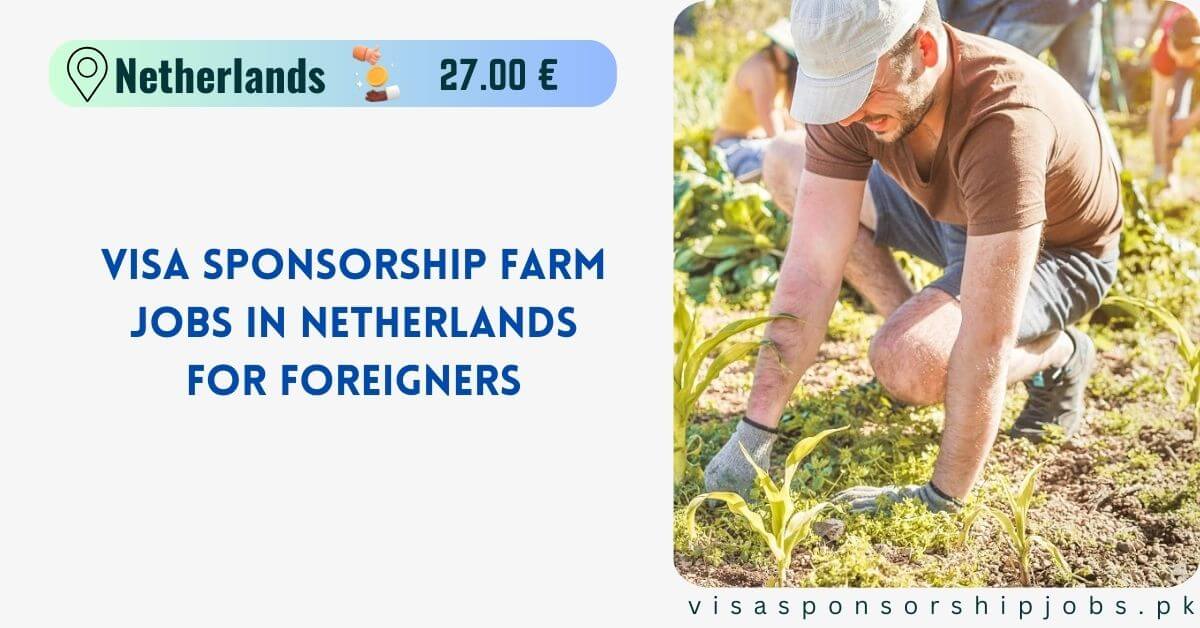Visa-Sponsored Construction Labourer Jobs in London 2025
Professionals looking for work have been drawn to London, a bustling metropolis, and the construction sector is a key component of this vibrant labor market. Prospective construction workers interested in jobs in London are drawn to the city’s many projects as well as the possibility of receiving visa sponsorship.
An essential component of the building process, a construction laborer’s duties range from site preparation to machine operation. The city’s ongoing expansion and revitalization are driving up demand for qualified and committed workers, creating a favorable environment for anyone interested in a career in construction. There are various steps in the visa sponsorship process for construction laborer employment in London, such as being aware of the different types of visas that are available, fulfilling the eligibility requirements, receiving a job offer from a licensed sponsor, and finishing the necessary paperwork.
Job Market in London:
The construction sector continues to be a major source of job openings in London’s labor market. Both governmental and private infrastructure initiatives are responsible for the sector’s steady expansion. For construction workers, this demand in turn generates a constant flow of job openings. There are positions available in a variety of construction fields, such as infrastructural, commercial, and residential projects. For prospective construction laborers, the employment market is competitive but promising because employers frequently look for people with practical experience, a strong work ethic, and the capacity to adjust to a variety of work conditions.
Check More: Jobs in London With Free Work VISA
Advantages of Construction Labourer Jobs:
Possibilities for Professional Development: London has a thriving construction sector with lots of projects, offering chances for skill improvement and career progression.
Visa Sponsorship: For eligible applicants, employers in London frequently sponsor visas, making it easier for foreign workers to work in the UK.
Competitive earnings: London construction laborer positions often pay competitive earnings, offering both financial security and the opportunity to make a respectable living.
Diverse Work Environments: Because of the numerous construction projects taking place throughout London, workers are exposed to a variety of work settings and building methods.
Access to Cutting-Edge Technology: The construction industry in London frequently uses cutting-edge techniques and technology, exposing employees to contemporary equipment and procedures.
Health and Safety Standards: Construction workers are guaranteed a safe working environment in the UK because to strict health and safety laws.
Opportunities for Networking: Working in London exposes workers to a wide range of construction industry professionals and businesses, which may lead to future opportunities.
Employment Security: Because London’s construction industry is constantly operating, workers in this field have some degree of employment security.
Access to Benefits and Perks: Construction workers may be eligible for healthcare, retirement plans, and other benefits, contingent on their employer.
professional Flexibility: The construction sector in London provides a wide range of professional specialization options, enabling workers to investigate several subfields.
Visa Sponsorship Process:
For foreign applicants hoping to work in London, obtaining a visa sponsorship for construction laborer positions is essential. The Tier 2 (General) visa was superseded by the Skilled Worker visa, which allows employers in the UK to sponsor skilled foreign workers. A employment offer from a UK employer with a valid sponsorship license is one of the requirements for this sponsorship, along with approval from a licensed sponsor and fulfillment of other requirements. To ensure they have the abilities required for the position, candidates must also meet requirements pertaining to English proficiency, pay thresholds, and occupation-specific criteria.
Qualifications and Skills:
Legal Work Eligibility: Applicants must be able to work legally in the UK and be willing to accept sponsorship if needed.
Physical Fitness: Physical fitness is the capacity to operate in a variety of weather conditions and carry out physically taxing jobs.
Construction Knowledge: A fundamental comprehension of the methods, instruments, and machinery frequently seen on building sites.
Health and Safety Awareness: Knowledge of the rules pertaining to health and safety in the construction sector in order to guarantee adherence and a secure workplace.
Team Player: Able to cooperate with coworkers and superiors, follow directions, and work well in a group.
Communication Skills: Sufficient communication skills to comprehend and successfully communicate instructions.
Adaptability: The capacity to operate on multiple construction sites and change course as necessary.
Reliability & Punctuality: To guarantee seamless project operations, maintain regular attendance and punctuality.
Problem-solving abilities: The capacity to recognize problems and assist in locating solutions on the spot.
Attention to Detail: When doing duties that have been allocated, concentrate on producing high-quality work and paying close attention to details.
Obligations for Construction Labourer Jobs:
Material handling: Safely and effectively move and distribute items to various locations on the property.
Site Maintenance: Site maintenance, which includes trash removal and debris cleanup, aims to keep the construction site tidy and orderly.
Safety Compliance: Wear the proper protective gear, abide by safety regulations, and report any incidents or safety hazards right away.
Equipment Operation: If necessary, operate simple construction equipment or tools under supervision.
Help with Construction chores: As instructed, help with a variety of construction chores, such as trenching, digging, and pouring concrete.
Observe Instructions: Complete duties in accordance with guidelines given by team leaders or supervisors.
Quality Assurance: Make sure that tasks are completed within predetermined parameters and with attention to quality.
Documentation: Keep track of all work done, supplies utilized, and any problems or events that occur.
Learn and Get Better: A readiness to pick up new abilities and become more skilled at construction-related duties.
Cooperation: Report progress, coordinate efforts, and have effective communication with team members to ensure projects are completed quickly.
Application Procedure for Visa-Sponsored Construction Labourer Jobs in London:
Examine employment sites like Reed, Indeed, Monster, and Totaljobs. Use job title (Construction Labourer) and location (London) to narrow down your search. Go directly to the websites of building companies. Many use their career pages to advertise job openings. Use their online application tools to send in your CV or resume.
Conclusions:
In conclusion, the construction sector in London offers a bright future for workers looking for visa sponsorship. A favorable environment for prospective construction laborers is created by the city’s continuing development initiatives and the continued need for qualified workers. People can increase their chances of landing construction laborer jobs in the bustling metropolis of London by carefully searching job sites, networking, and customizing applications to businesses that offer visa sponsorships.
Frequently Asked Questions:
Are construction laborer jobs in London available with visa sponsorship?
Visa sponsorship for general construction laborer roles in London is limited, as these jobs are usually not on the UK Skilled Worker visa list. However, roles with specialized skills may qualify.
What are the requirements for visa-sponsored construction jobs in the UK?
You typically need relevant construction experience, possibly a recognized qualification, and a CSCS card. For sponsorship, the job must meet the Skilled Worker visa eligibility.
Where can I find visa-sponsored construction jobs in London?
Search on websites like the GOV.UK Skilled Worker visa sponsor list, Indeed UK, or through licensed UK recruitment agencies. Focus on listings that mention “visa sponsorship available.”










